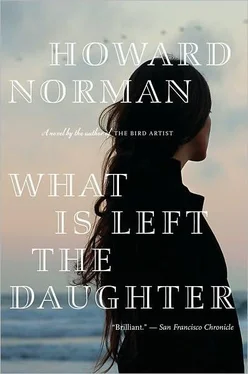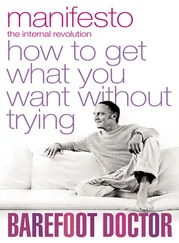"Mom was going to miss the wedding anyway," she said. "Strange, I was thinking of a platitude: When a wedding and a funeral meet on the road, the funeral should always step aside. Except I've just stepped aside my wedding for a funeral, haven't I?"
"Look at it any way you want, Tilda."
"Wyatt, I did leave a message for you at the Baptist Spa. It was the first long-distance telephone call I'd ever made. I knew you couldn't get back home in time. At least I wanted you to have notice."
"I never got the message."
"Did you ask after any messages?"
"I spent all night with prostitutes. Please don't tell Aunt Constance."
"Oh, well. You'll have to describe that experience some time, Wyatt. If it's still the truth by the time you're ready to describe it."
"I'll relate it to Hans, man to man."
"I'm sure my husband will learn something new."
"Does your father know you already got married?"
"To that end, we paid Reverend Plumly an extra amount. He drove over and told Dad."
"But you haven't seen Donald."
"No. And no surprise, he hasn't visited the newlyweds."
"Are you planning a honeymoon, then?"
"In two years, we hope. Given our present finances."
"So probably you'll move to Halifax."
"Hans has to finish his degree. And Dalhousie's in Halifax, isn't it? A man and wife live together, don't they?"
Hans stepped into the bakery, looking a little the worse for wear himself but with an expression of surprise and great relief, as if he hadn't seen Tilda in ages and was dumbstruck by the very sight of her. "Good morning again, my angel," he said, and kissed Tilda's hands. Hans was wearing a winter coat, and he'd brought a shawl and set it around her shoulders. "Hello, Wyatt," he said. "Tilda's my wife now. But you can meet her for breakfast like this any morning. If she approves. You are fortunate cousins, I think. It would be nice to have my own cousins living as close by."
"Where are your cousins, anyway?" I said.
"Denmark and Germany," Hans said.
"No, I guess Denmark and Germany aren't close by Nova Scotia, are they?"
"I wrote down a phrase the other day," Hans said. "'An ocean separates us.'"
"You're filling up those notebooks left and right. Keep up the good work, Hans," I said. "Tilda, where's Cornelia?"
"Gone to get more flour," Tilda said.
"Wyatt," Hans said, "I have an idea and I want to speak with you about helping me with it. Let's all have breakfast together, then — Wyatt, do you have to go immediately to work with toboggans, or might you have time to speak with me?"
"Lately, Hans, my employment situation's up in the air."
"I hope it comes down," he said.
"What is it you want to talk about that you can't say in front of your wife? Not, if you ask me, an honest way to start married life, eh?"
Hans sat down at the table. Tilda brought over a pot of coffee and cups for all three of us on a tray. She set the pot on an oven mitt on the table. She slid open the glass display case and took out a plate full of day-old scones and set it on the table, too. Hans said, "All right, good. Thank you for the lesson in marriage. But Tilda already knows my idea."
"We talked about it for hours," she said.
"I probably will fail," Hans said. "But I'm wanting. Very much wanting. To — how did you put it, Tilda?"
"Make amends," Tilda said.
"Make amends with Donald Hillyer. He's my father-in-law now. I'd like to make amends with my father-in-law."
I said, "You've got a better chance of having afternoon tea with Jesus."
Tilda laughed, because she remembered the title of one of Reverend Witt's sermons: "Is Afternoon Tea with Jesus Possible?" Hans looked puzzled. With that title, Witt had intended to make people curious about simple day-to-day faith — if Jesus dropped by one day for tea and a chat, off the cuff, what might you most want to discuss with him? Tilda kissed Hans and said, "Not laughing at your expense, darling. Go ahead. Go on. Tell Wyatt what you have in mind."
"Like an archaeologist, I glued pieces of Mr. Hillyer's phonograph records together," Hans said. "They're too damaged to play, of course. But I was able to write down the names of the composers and the compositions, you see. And my idea is, you accompany me to Halifax, because I frequent a classical music store. The proprietor's name is Randall Webb. Randall and I are friends from almost the first day I arrived to Halifax three years ago. In exchange for German language lessons, Randall allows me to borrow music."
"Hans, darling, no need to start every story with Genesis," Tilda said. "Just tell Wyatt what's the plan."
"All right, yes," Hans said. "I hope to purchase new copies of my father-in-law's phonographs, the ones he left broken on our bed."
"I get the picture," I said. "You need my car, so here's what. I will drive you down to Halifax. But only because Aunt Constance would be pleased to have those records back playing in the house."
"That's reason enough, Wyatt," Tilda said.
"How are you going to pay for this big scheme of yours?" I asked.
"I'm pitching in my soon-to-be-earned mourner's fee," Tilda said. "And Hans has scholarship money left. Not much, but some."
"You can figure out your family finances on your own. My part of the bargain, though, is that I don't want to wait. I want to drive down to Halifax today. I'll even loan you some money if you need it. What do I spend it on, anyway?"
"Halifax prostitutes, I thought," Tilda said.
Hans practically spit out his coffee. "Where, Wyatt, that building on Lower Water Street? Or that small hotel near Citadel Park?"
"How'd you come by such information?" Tilda asked.
Caught up short, Hans took Tilda's hands in his and said, "Some seniors from Dalhousie frequent these places. At least that's my understanding."
"By the bye, I'm tagging along," Tilda said.
"My car's right outside."
"I'll need a few things," Tilda said. "Be back in a jiffy."
"Sit in the car with me, Hans," I said. "I'll explain 'jiffy' to you. I could tell you liked that word. See how I'm getting to know you?"
When she returned, Tilda sat between Hans and me and we drove out of Middle Economy. "I have to make a stop in Truro," I said. When we got to Truro, I parked in front of Winterson's Cleaning Establishment. Hans and Tilda waited in the car while I went inside. Since I was no longer going to give Tilda away in marriage, I'd intended to take my suit back unlaundered and save the money. But Bettina Winterson said, "Your suit's ready." I paid her and carried the suit on its hanger to the car, opened the door and laid it across the back seat.
"What's that?" Tilda asked.
"Wedding suit," I said.
"How much did it cost to clean?" she asked. "I'll pay you back so I won't feel bad."
"It had to be cleaned eventually," I said. "Let's leave it at that."
We hardly spoke the rest of the way to Halifax. Once in the city, Hans directed us to Ballade & Fugue, his friend's store, on Trollope Street. I locked my suit in the car. The store consisted of one large room with narrow aisles of bins packed with gramophone records. It smelled musty and the front windows needed washing. Music was playing on a gramophone behind the counter; I didn't know the composition. A blackboard announced NEW ARRIVALS, a list underneath. A big contraption of a cash register sat on the counter. Hans and Randall Webb greeted each other in German and said two or three additional German sentences, laughing a bit at the end. I noticed that the one other customer, a man of about thirty and wearing an RCN uniform, stiffened his shoulders, worked hurriedly through a bin for a minute, said to Randall, "Sorry, fella, nothing here for me," then left the store.
Randall shrugged. "He'd come in asking for — how to say it? More popular types of music. Oh, well."
Читать дальше












